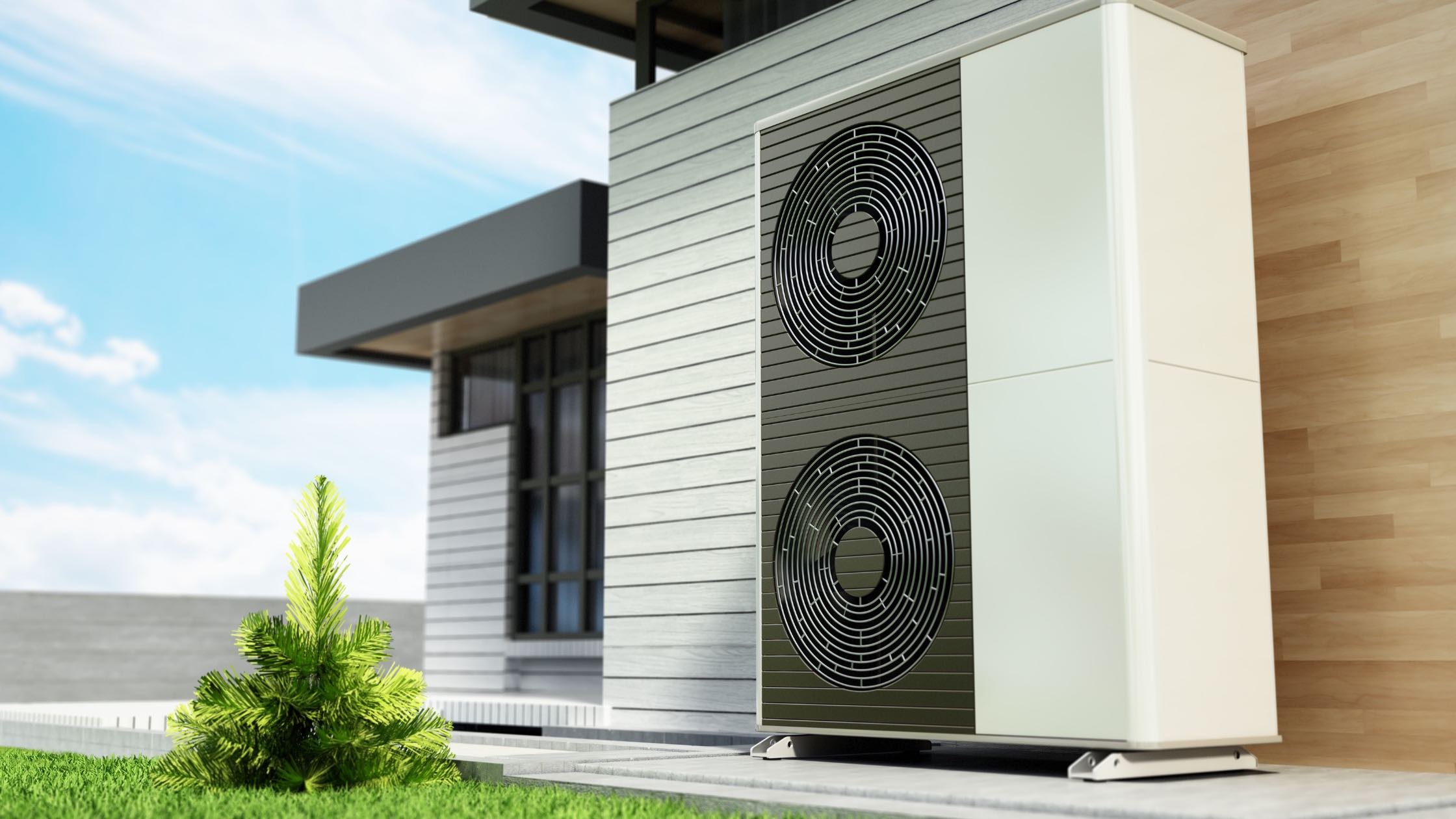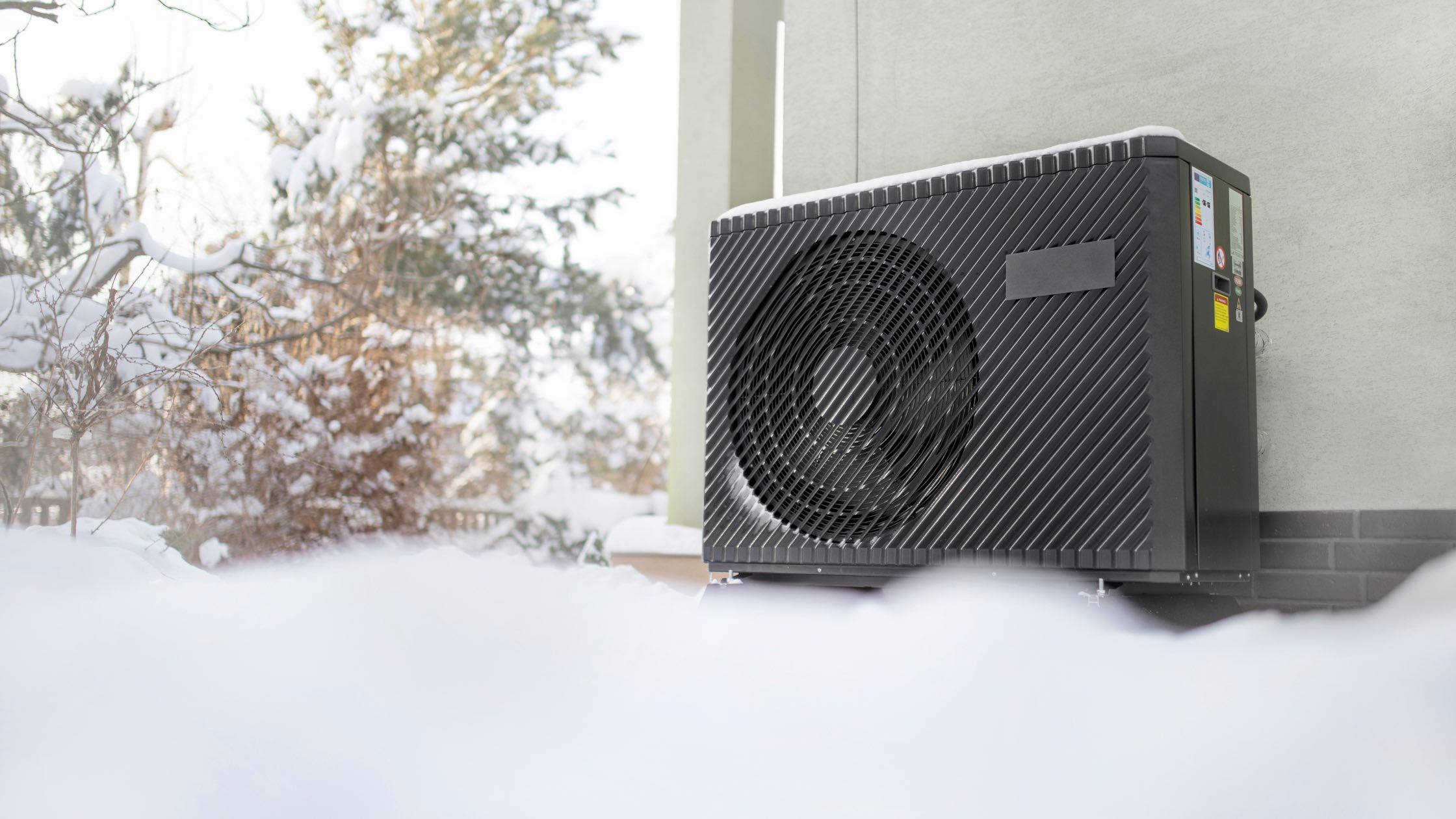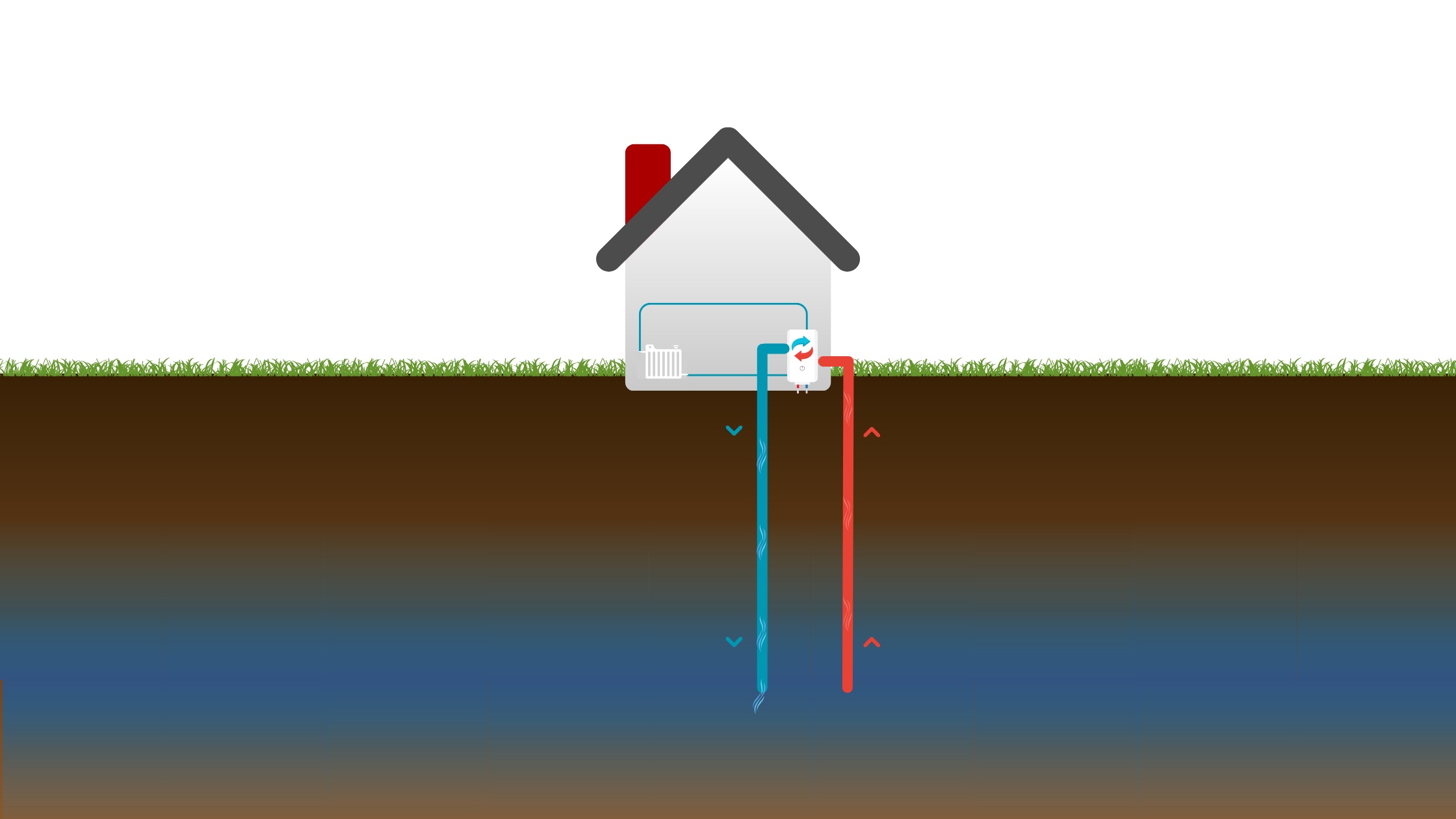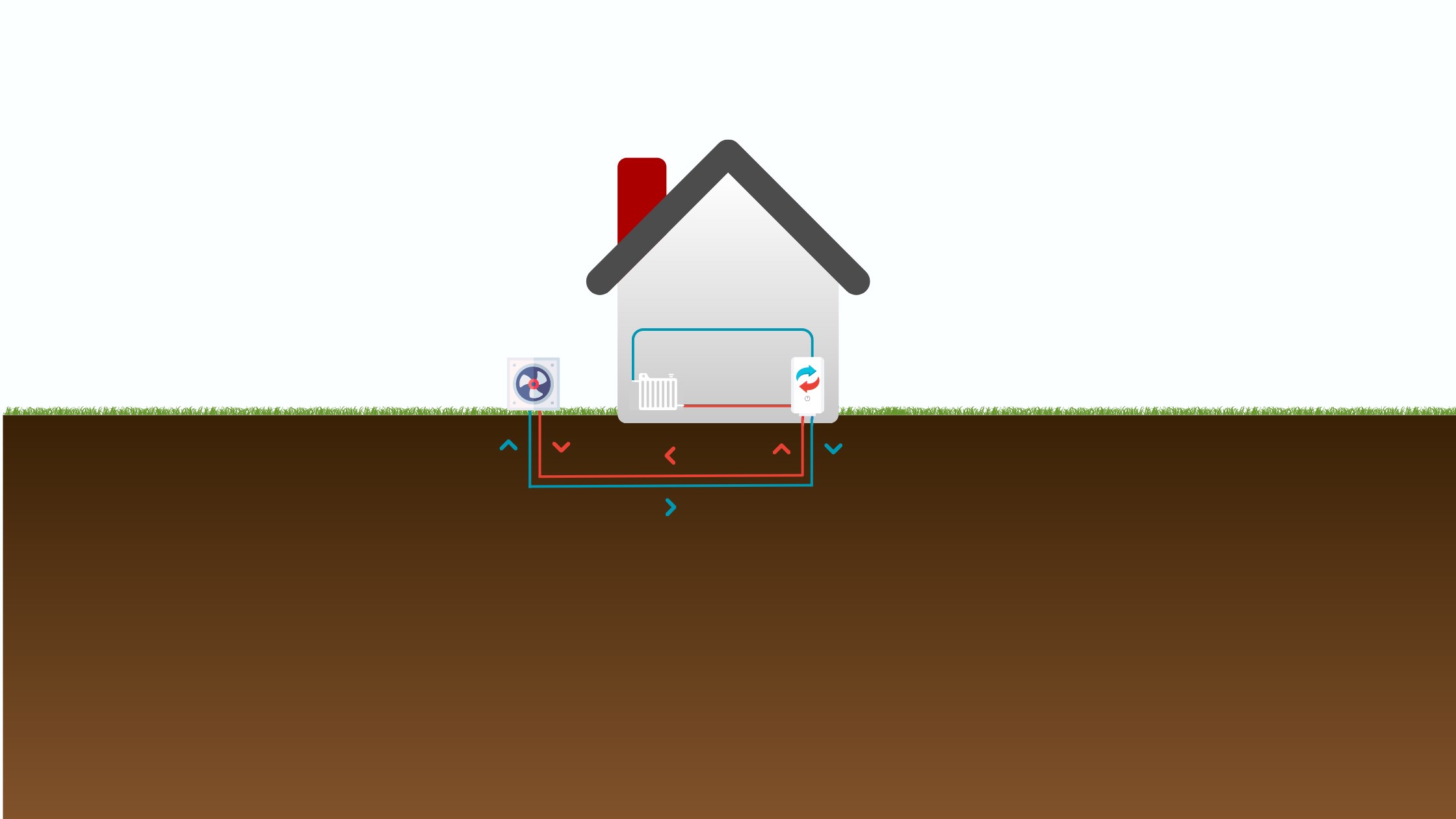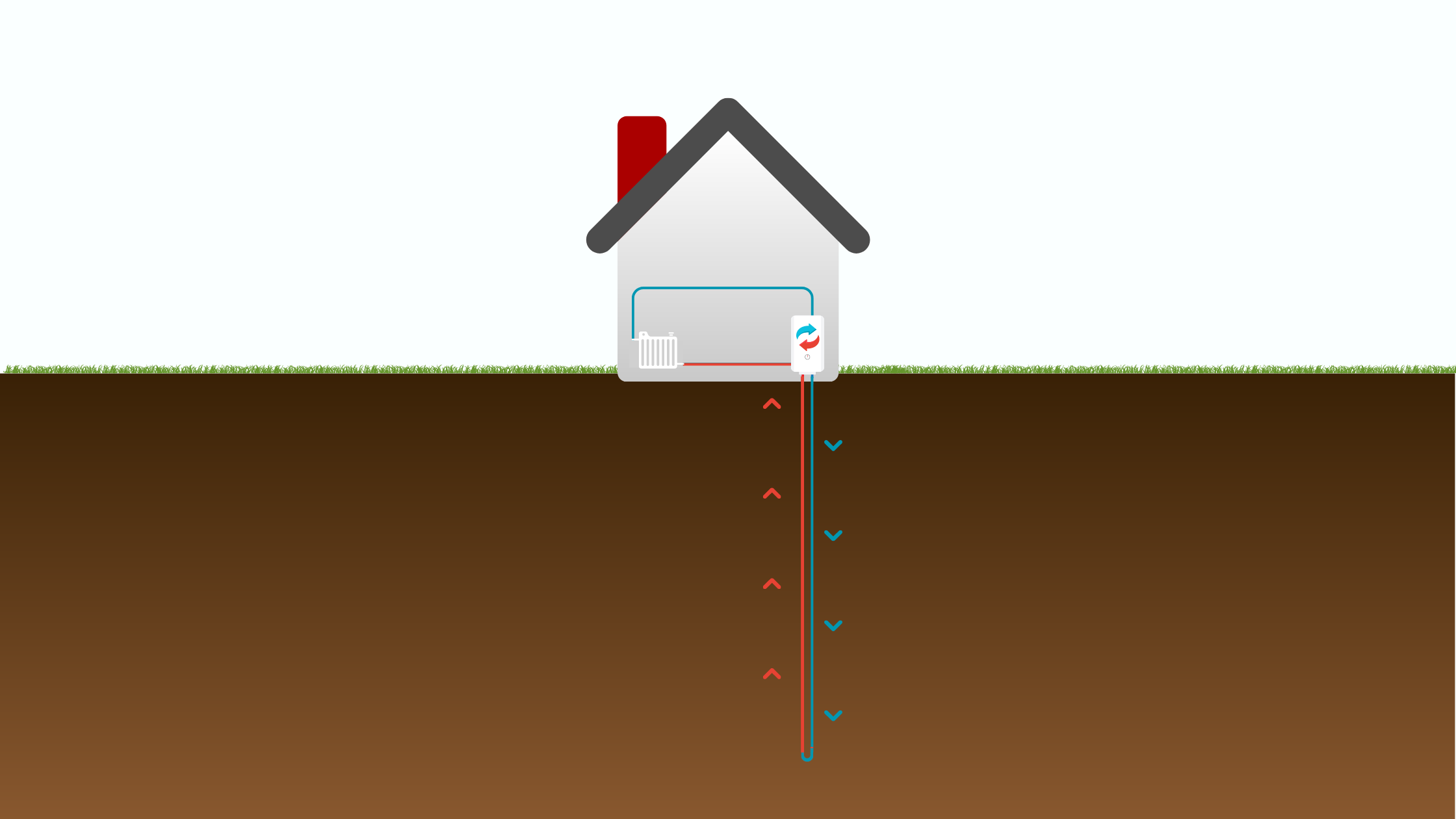

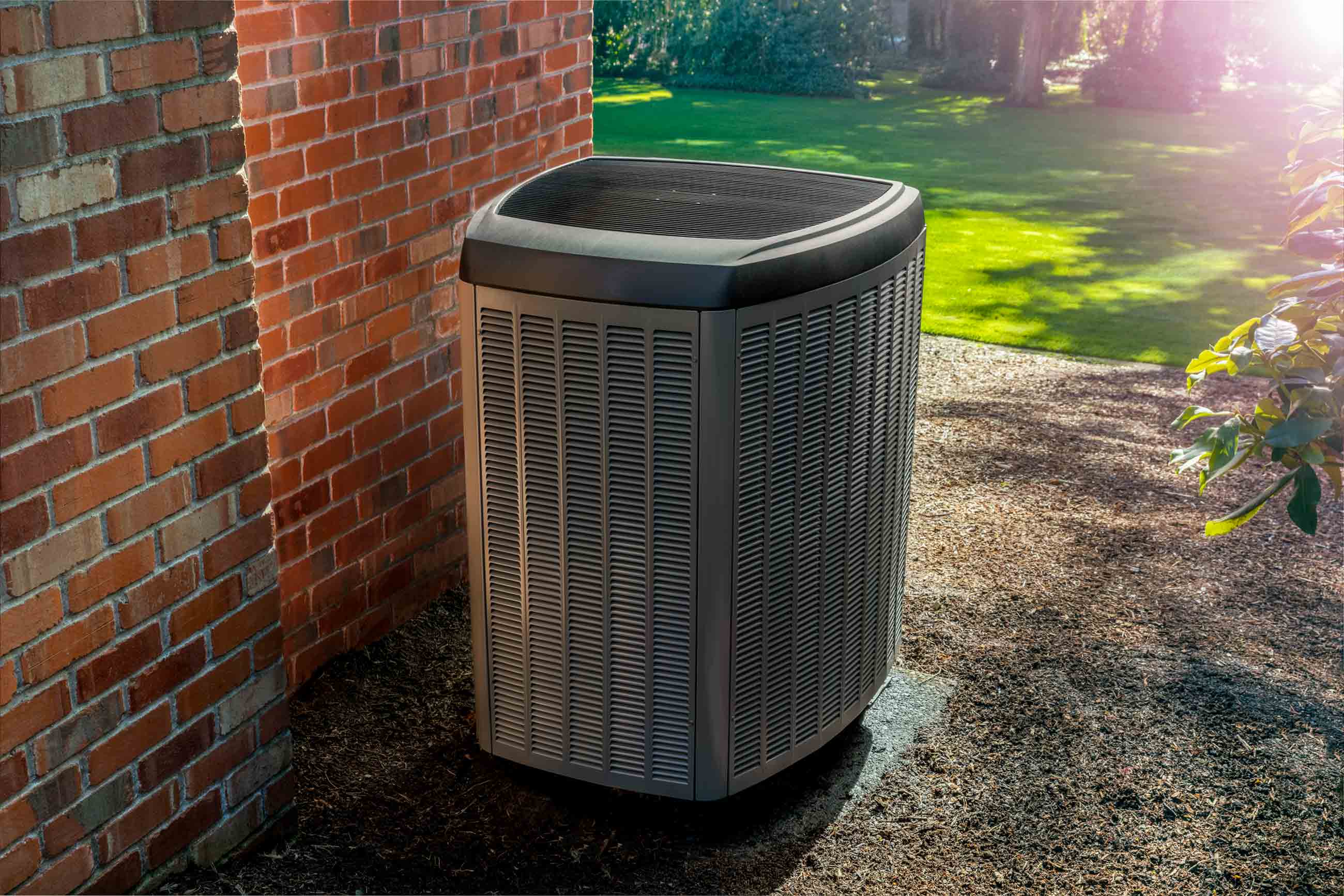
Buildigo offers: heat pump
Air-to-water heat pump, geothermal probe heat pump or groundwater heat pump: all heat pumps operate according to the same principle – they extract heat from the environment and emit it within the building. Heating is thus effectively delivered free by nature – but not entirely: as the heat doesn’t come into the house on its own, a pump is needed for this – and this requires electricity. The secret of the heat pump’s success is its high efficiency: depending on the model, it can produce between three and five units of heat with one unit of electricity.
How a heat pump works
But how exactly does a heat pump work? In principle, a heat pump is nothing more than a refrigerator operating in reverse. The heat simply flows in the other direction with a heat pump. This is brought about by vaporising and subsequently condensing a heat transfer medium such as ammonia.
How efficient are geothermal heat pumps and air heat pumps?
Heat pumps work more efficiently the higher the temperature of the heat source extracted. Geothermal heat pumps therefore work more efficiently than air heat pumps, as the temperature below the earth’s surface at a depth of 50 to 200 metres is between 8° and 15°C warm – the greater the depth, the higher the temperature. By contrast, outside air temperatures are frequently below 0°C in the winter. Annual COP quantifies the efficiency of heat pumps (h2) The efficiency of a heat pump is measured in terms of its annual coefficient of performance (annual COP). More precisely, the annual COP quantifies the balance between the heat given off and the power consumption of the heat pump required for this throughout the entire year. For example, a heat pump with an annual COP of three can on average generate three kilowatt hours of heat from one kilowatt hour of electricity. Typical annual COPs are:
Air heat pump: 3 to 3.5
Geothermal probe heat pump: 3.5 to 5
Groundwater heat pump: 4 to 5.5
Which is the best heat pump for heating?
Different heat pumps may be suitable for heating a house depending on the structural situation, budget and legal requirements. Air-to-water heat pumps and geothermal probe heat pumps are customary, as are also groundwater heat pumps in infrequent cases. All heat pump systems work in the same way in terms of their underlying principle but make use of different sources of heat – as reflected in their names.
Air-to-water heat pumps
Air-to-water heat pumps, frequently simply referred to as air heat pumps, make use of the outside air in the vicinity of the house as a source of heat. They consist of an indoor heat pump and an outdoor unit that sucks in air and conducts it via a heat exchanger (split heat pump). The heat transfer medium circulating there subsequently flows into the heat pump inside the house. An air-to-water heat pump can still extract heat from the ambient air even at temperatures of minus 20 degrees Celsius – but it is then no longer very efficient. Air-to-water heat pumps are the most common heat pumps here in Switzerland. They require significantly less investment than geothermal probe heat pumps but consume more electricity in operation.
Geothermal heat pumps
Geothermal heat pumps, also referred to as geothermal probe heat pumps or brine-water heat pumps, demonstrate impressively high efficiency: they extract heat from the ground. A deep hole is therefore required for geothermal heating. A geothermal probe is installed at the end of this that absorbs the heat and conducts it to the surface in a circuit. If the heat pump is installed at a single-family dwelling, the geothermal probe drilling is normally about 200 metres deep. If this is not possible owing to legal or geological reasons, two boreholes around 100 metres deep can be drilled instead. Cantonal approval under water protection legislation is required at all times for deep drilling. If a building is located in a groundwater protection zone or there are geological reasons preventing it, a geothermal probe heat pump is not possible.
Groundwater heat pump
A groundwater heat pump frequently works even more efficiently than a geothermal heat pump. As the temperature of groundwater generally lies at around 10°C, there is a lot of heat stored in it. However, for water protection reasons, groundwater heat pumps are only rarely approved – and usually for larger properties.
Heat pumps and noise protection
Noise protection for heat pumps is not only legally mandatory but also important for good neighbourly relations. However, the noise volume of outdoor units of air-to-water heat pumps varies greatly. Lawsuits therefore frequently arise due to excessively loud outdoor heat pumps. This can be avoided: among the decisive factors is where an outdoor heat pump is positioned. The heat pump outdoor unit accordingly needs to be placed a long way from noise-critical areas such as bedrooms. The greatest possible distance from neighbours should also be maintained. And there are heat pump models for sensitive locations that run particularly quietly.
Costs of heat pumps
The costs of heat pumps vary greatly. They depend not only on the model but also on the structural measures. The price for the purchase and installation of an air heat pump lies at around CHF 35,000, while the costs of a geothermal probe heat pump amount to around CHF 46,000. The reason for the higher costs is the deep drilling required to access geothermal heat.
What is the best heat pump?
When comparing the procurement and installation costs, heat pumps perform worse compared to one-to-one replacement with oil heating. However, the higher investment costs are fully offset within around ten years by low operating costs. What is the best heat pump from a cost perspective? Viewed throughout the entire lifecycle and with optimum operation of the heat pump, the costs of a geothermal heat pump are the lowest, followed by those of an air heat pump. Depending on the model, a heat pump can also be used at low cost as an air conditioning system. Conclusion: from a long-term perspective, the benefits of a heat pump thus outweigh its drawbacks.
Funding for heat pumps
Funding for heat pumps is available in most cantons when replacing fossil-fuel heating, as switching from oil or gas heating to a heat pump can reduce the CO2 emissions of a building by over 80%. The funding programmes sometimes change. You should therefore ascertain precisely prior to installation which funding is available for the heat pump. In case of doubt, the heat pump company, which in most cases will be a company specialising in heating/plumbing, will be able to assist you.

